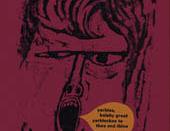When I began my research for this essay, I had every intention on the slang words used in A Clockwork Orange. "The main sources for these additional terms are Russian. Although there are also contributions from, Gypsy, French, Cockney/English slang and other miscellaneous sources such as Malay and Dutch and his own imagination" (Vaccari). As intriguing as this was to me, I couldn't help but to stray from my intended topic. You see, I had obtained two different versions of the book, one English version and one American. The difference in the two is the absence of the final chapter. The book was released, as planned, by Burgess in 1962, with 21 chapters, broken into three different parts. Once the book was released in America, publishers cut the 21st chapter. Therefore, in the remainder of this essay I will explain how this affects the books meaning, my thoughts on the subject, and a few other topics of concern.
First, a brief overview of the book, up to chapter 21, is needed. The novel begins with the protagonist, Alex, sitting in a bar with his friends, or "droogs", Pete, Gerogie, and Dim. This "milkbar" was a common hangout of the time. "They had no license for selling liquor, but there was no law against prodding some new veshes..." (Burgess, 1). Basically, they put certain drugs in the milk to avoid paying for a liquor license. This prepares the gang for their night of violence. The gang performs the same ritual nightly, until one night a woman bursts into song, and Dim makes an obscene gesture towards the woman. This angers Alex, as he is a lover of the arts. He punches his friend Dim, which in turn upsets the rest of the group. They are tired of being led...



A Clockwork Orange
Nice essay, well done!
I think it's shocking that the 21st chapter was taken out of the american version of the book. Apparently Burgess only agreed to it because he was so strapped for cash at the time. It's such a shame as I think the last chapter just reinforces the whole argument that Burgess is putting across. He has a great counter-argument, but at the end of the novel brings a conclusion hat cements his ideas and the ommission of the final chapter undermines that.
I agree with you that its just an attempt to Americanise all things, as America does with everything. I wouldn't read the American version, it's not the complete book.
1 out of 4 people found this comment useful.